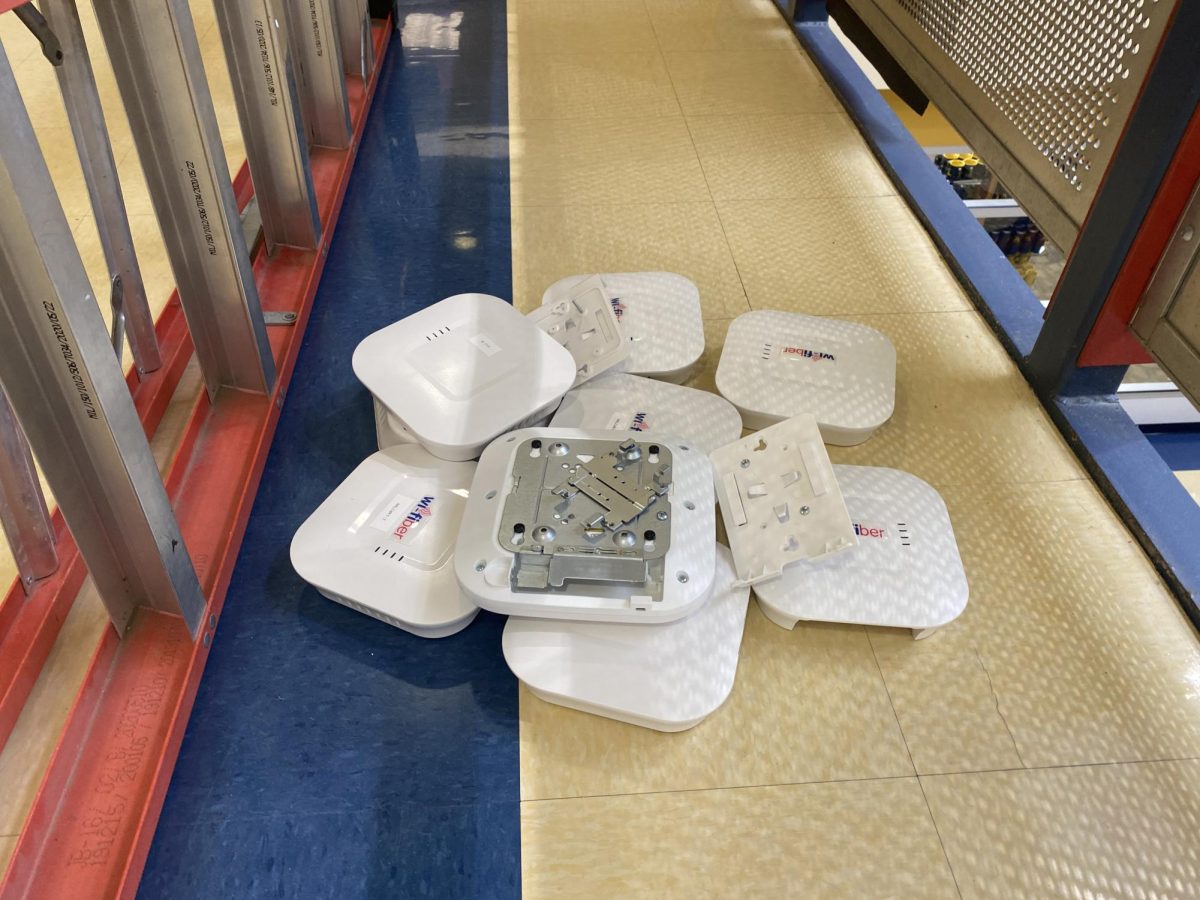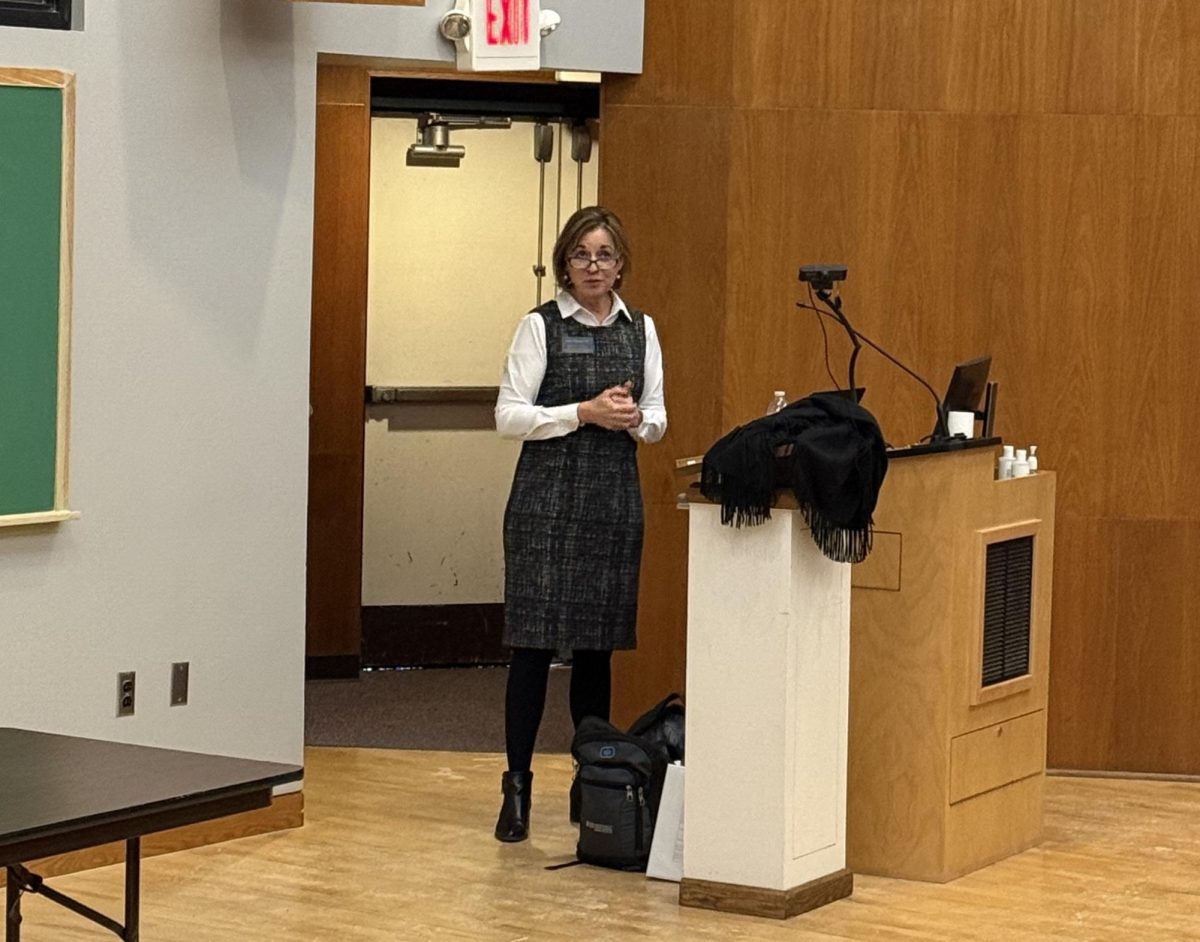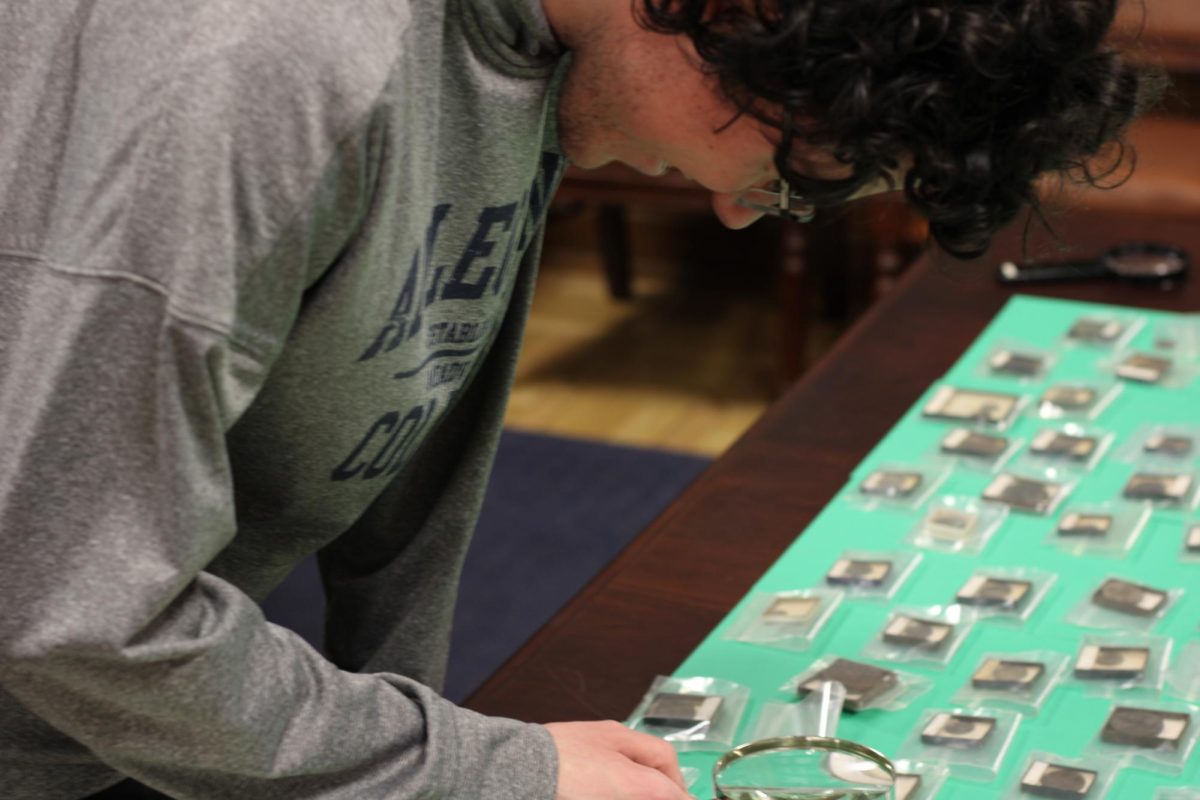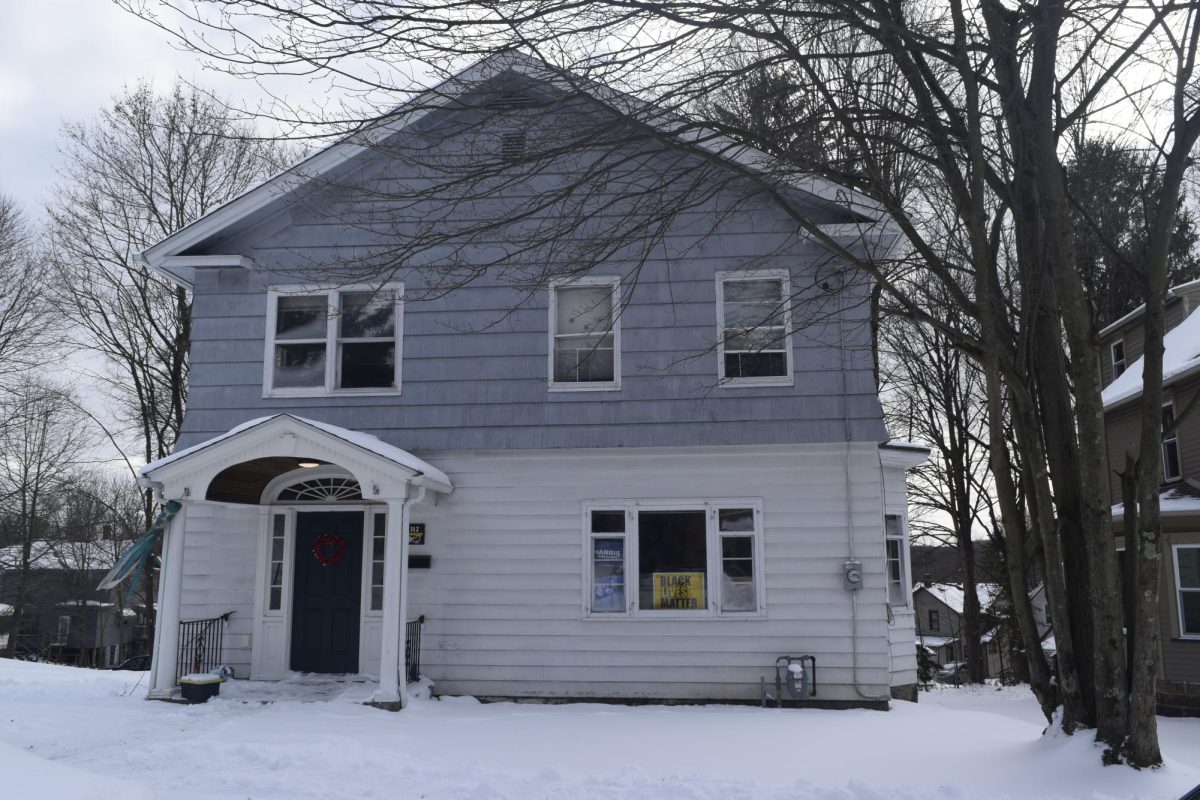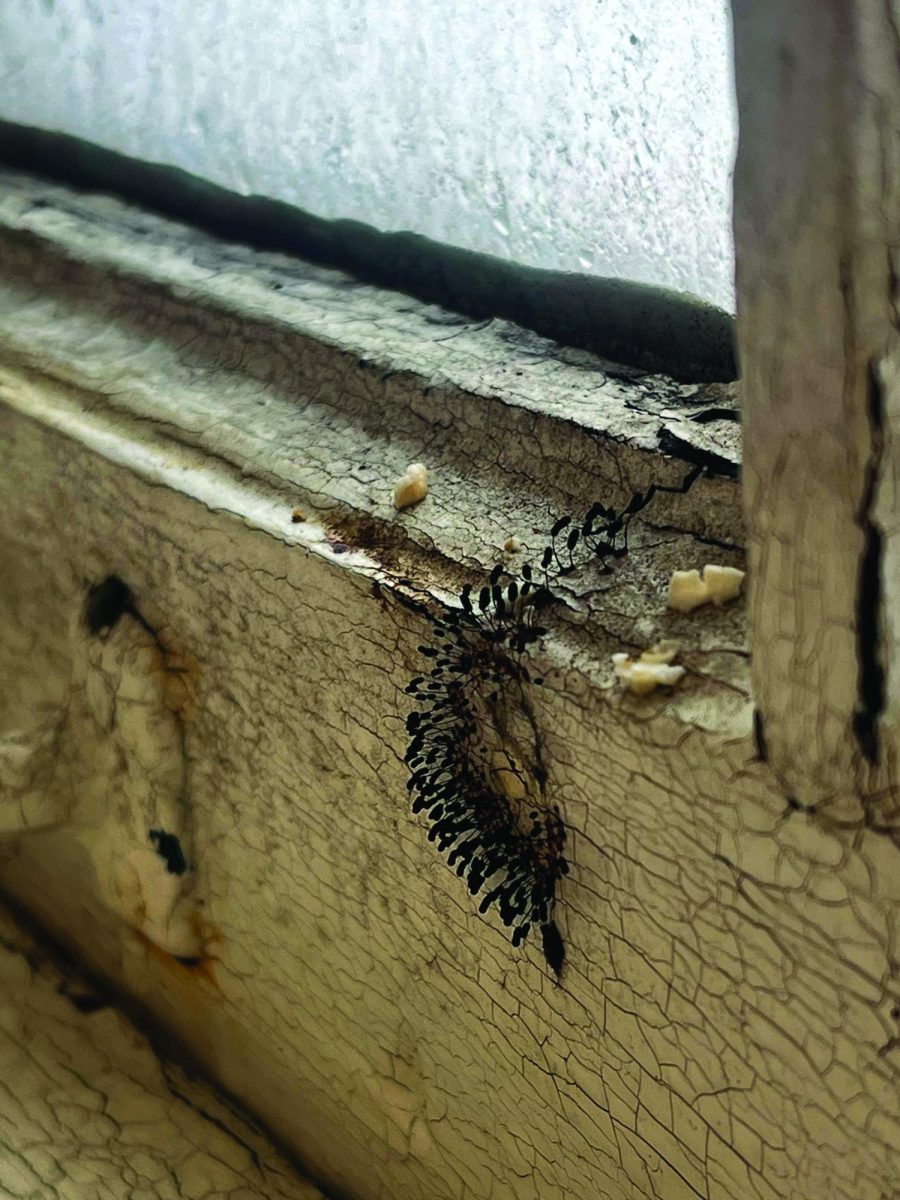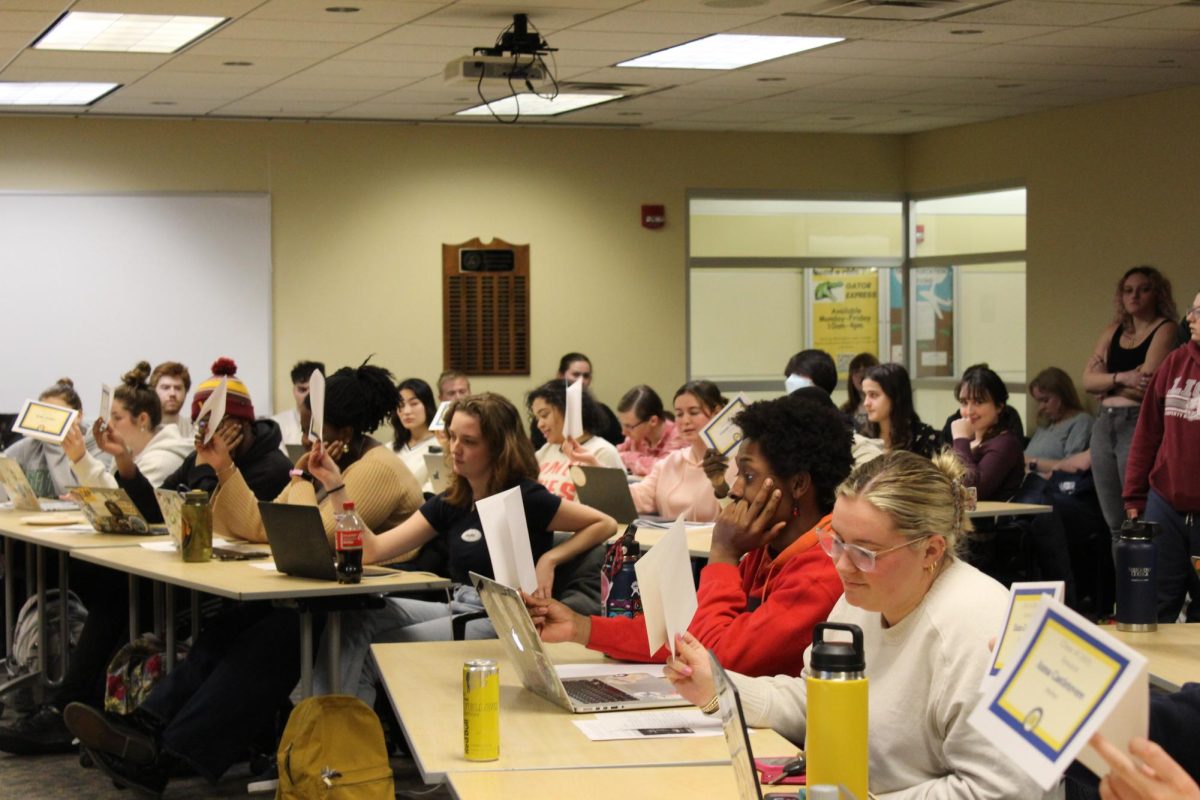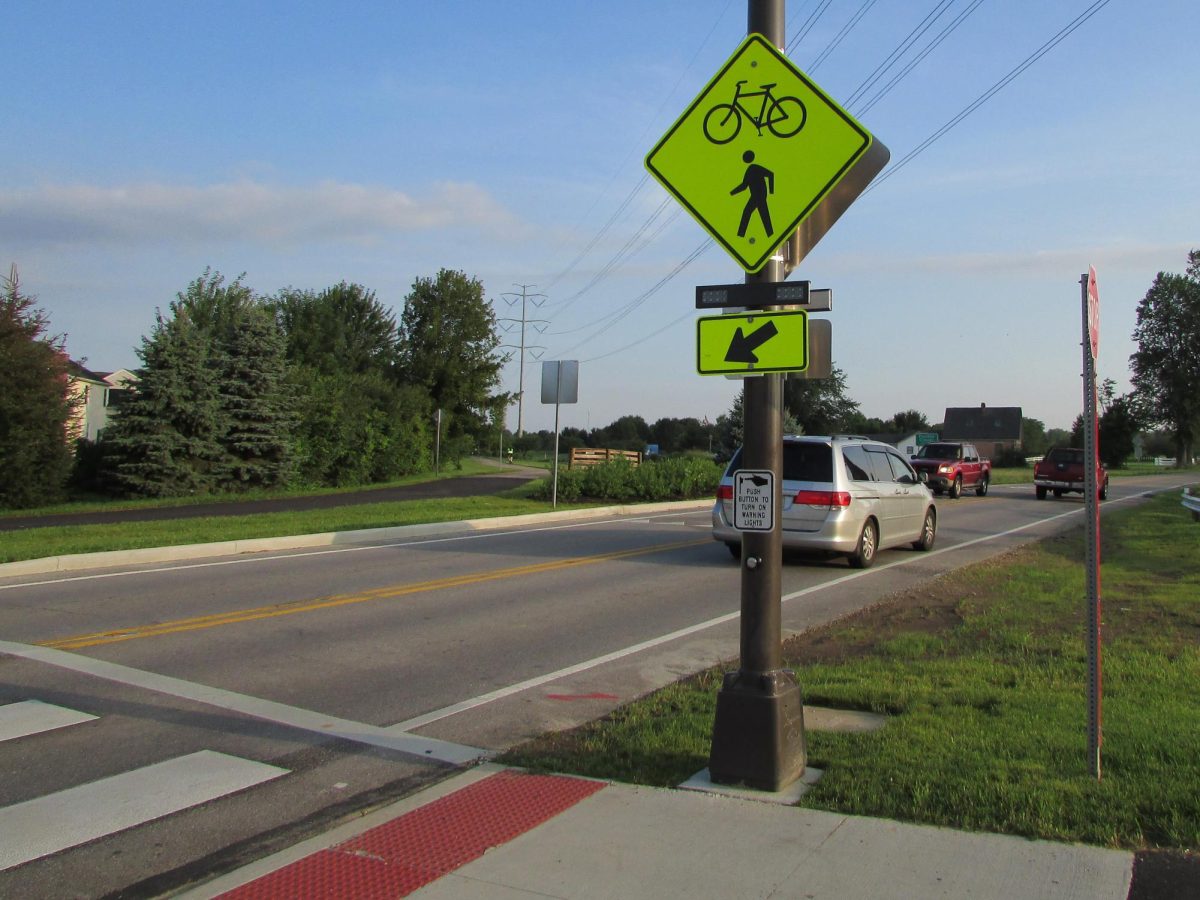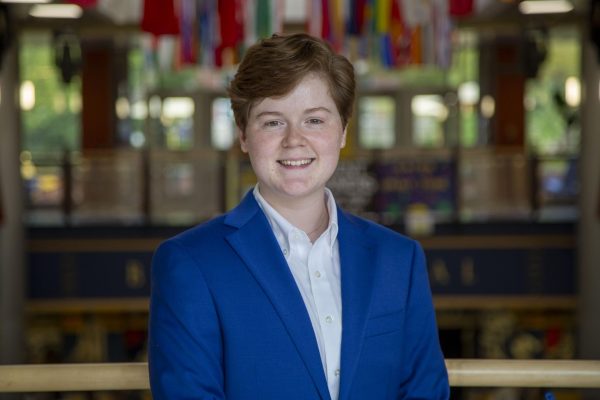A petition requesting a partial tuition reimbursement for all students due to ongoing Wi-Fi issues garnered over 700 signatures from the campus community before being taken down on Oct. 20.
The story of the petition’s administrative response and subsequent takedown differs depending on who you ask.
According to the creator of the petition Lyndsey Robinson, ’24, some college officials first voiced support for the petition before others asked for it to be taken down. Dean for the Student Experience Ian Binnington, however, says that the college did not make any takedown requests.
One things is certain; Robinson began circulating the petition on Oct. 17 via email and word of mouth. The Google Form linked in the email remained available until Oct. 20 when she closed it to responses.
“Wi-Fi is just like the equivalent of water these days,” Robinson said during an Oct. 24 interview. “You need Wi-Fi, and it’s not fair that we’re paying so much money for not having an amenity that’s absolutely needed. So I just kind of wanted to bring awareness to that because there’s so many of us struggling.”
The petition requested a $750 reimbursement for all students.
“It kind of just popped in my head,” Robinson said. “I didn’t really think of a number. I just was like, ‘$750 sounds good.’”
If every student were given a reimbursement of that amount, the payout from the college would total almost $925,000.
In a Nov. 1 statement to The Campus, the college acknowledged the petition and highlighted the variety of ongoing measures aimed at improving the campus internet.
“As the petition has not been formally submitted to the College, we have no comment on its details,” a spokesperson for the college wrote. “We know that there is still work to be done and we are committed to doing that work as quickly and as effectively as we can.”
In a Nov. 8 email to The Campus, Chief Information Officer Katrina Yeung said that the Information Technology team is making “steady progress” on network improvements and that the initial installation of new access points is complete in residence halls, the Henderson Campus Center and the Pelletier Library.
Robinson shared a list with The Campus containing more than 600 short answers petition signers wrote explaining why they added their name to the petition. Although the list included no identifying information, some signers identified themselves by their titles, which included professors, a football coach, resident advisors, head resident advisors and members of the Allegheny Student Government.
Robinson, who currently serves as a senator for the class of 2024, said that the vast majority of ASG signed the petition, with the exception of four or five individuals who she said are in leadership roles.
“I don’t want to specifically say who it was just because I don’t want them to feel uncomfortable about them signing it or anything,” Robinson said. “But I do know that one person said that if they weren’t in a (position of power) on ASG, they totally would have signed it.”
A respondent who identified themselves as a football coach wrote that they signed the petition because they were frustrated with having to bench some of their star players because of academic warnings, which the coach said were issued due to lack of stable internet.
Robinson said she talked with Dean for Student Life Trae Yeckley and Third- and Fourth-Year Class Dean Jonathan May about the petition prior to publishing it. According to Robinson, both were open to exploring whether her request was reasonable and achievable, and that they were supportive overall of the petition’s creation.
“When I approached them (Yeckley) about the petition, they told me that whatever I needed help with that they would try to help and they would help me get in contact with people that needed — that I could meet with to discuss the possibilities and things like that,” Robinson said. “Before they and I could talk about setting up meetings with Financial Services to discuss if it was possible or not, Mr. Binnington kind of swooped in and grabbed me.”
Yeckley acknowledged that they spoke with Robinson about the petition prior to an Allegheny Student Government General Assembly for a “few moments,” but disputed Robinson’s statement that they assisted with the petition.
“As with most student concerns, I offered empathy to the student experience and to students’ right to voice their concerns within the constraints of The Compass,” Yeckley wrote in an email statement. “I didn’t provide assistance with the petition except to pass the petition along to a member of the President’s Cabinet. I was not involved in the creation, distribution, or collection of the petition, and I have not seen any data related to the petition.”
Robinson said that she regularly updated Yeckley with the petition’s most well-written and interesting responses.
While the petition was open for responses, Robinson claimed that May reached out to her directly over email to applaud her efforts.
“He goes, ‘I think this is a great idea,’” Robinson said. “From an administration standpoint, you’d think they’d be like, ‘Hold on. Let’s rethink this.’ But instead they were giving me encouragement and was like, ‘I think this is great. I love the leadership.’”
Robinson could not provide May’s email to The Campus for verification. May denied any involvement with Robinson’s petition.
“Lyndsey Robinson and I have never discussed her petition project via email and I am not aware of what her petition entails and have not seen it,” May said in a Nov. 2 email statement to The Campus. “Because I have never saw this petition before I cannot offer my support for it or comment.”
Binnington reiterated in a Nov. 6 email statement that the college played no part in the creation of the petition.
“By definition, student-led petitions are managed by students,” Binnington wrote. “The College has no role in approving questions or distributing student petitions. While Lyndsey may have spoken to Dean May or Dean Yeckley about the petition, neither they nor other members of the Student Life and Student Success staff provide assistance for student-led petitions.”
Binnington said Robinson shared some of the anonymous short answer responses with him at his request.
“The request to see the narratives was to understand the sorts of issues that students were reporting,” Binnington wrote.
A Campus review of the responses provided by Robinson showed common themes such as seniors struggling to meet deadlines for their capstone comprehensive projects, students being unable to reliably access online therapy or medical resources, professors tiring of the Wi-Fi issues and being unwilling to make accommodations, and general frustration that it appears that the burden of poor administrative decision-making is falling on students.
Additionally, some students expressed frustration that many of the businesses the college partnered with to provide students with reliable Wi-Fi do not have hours extending into the evening when many students do their homework. Multiple students who signed the petition wrote that they have considered transferring or taking a leave of absence until the internet is completely fixed.
On Oct. 20, Robinson said Binnington arranged a meeting with her where he “politely asked” her to take the petition down because it had not been made in accordance with college protocol.
Binnington, however, said he did not ask Robinson to take down the petition.
“I was not aware that the petition had been taken down, and to my knowledge no one asked the student who initiated the petition to remove it,” Binnington wrote in a Nov. 6 email statement. “I did ask the student to give us a couple of weeks to consider our position before formally submitting the petition, but at no point did I ask that it be removed.”
Robinson said that during the meeting, Binnington also explained that the college did not have the financial resources to accommodate her request.
“Basically the meeting was like, ‘We have thought about doing this, but we’ve put so much money into the internet and the cabling and then we put, like, almost $100,000 into the Tim Horton’s and French Creek vouchers and we offer Gator Express rides, which use gas,’” Robinson said.
Binnington disputed this claim as well.
“The College has spent tens of thousands of dollars collectively on coffee, co-working spaces, hotspots, ethernet cords, and everything else we have done to try and help students gain access to more reliable internet while the issues with the network persist,” Binnington wrote. “But we did not spend $100,000 on coffee vouchers.”
Though Robinson’s petition is no longer up, she plans to continue pushing the college by trying to talk with fellow students, professors and media outlets, like The Campus and the Meadville Tribune.
“Now with my petition being taken down, I kind of want to make more of a rise out of it just out of spite,” Robinson said. “Just because we’re trying to tell you there’s something wrong and you’re just trying to diminish the fact, and it’s not useful.”
Network status update
The IT team continues to work on “clean up items,” including running new network cables and investigating individual access points that are not functioning properly, according to Yeung in a Nov. 8 email to The Campus.
Soon, Yeung and the IT team will do a second sweep through campus to tune the access points, which will generate stronger connection signals and prevent interference.
During an Oct. 30 interview, Yeung urged students to leave the new access points alone, citing an incident in Baldwin Hall two weeks ago when someone unplugged all the new access points that had been installed in a hallway.
The IT team is also replacing all of the core switches in the residential buildings, which Yeung said is complex and can lead to a few minor mistakes.
“We’re taking out all the switches, putting in all new switches, which requires us to unplug everybody’s connection and then re-plug it all back in,” Yeung said. “So in some cases in residence halls, we have missed plugging back someone’s wired connection. If that happens, it was an oversight on our part and we apologize for that. Just put in a ticket and we’ll come back.”
There is currently no timeline for getting the Loomis Street houses online due to the lack of infrastructure installation by Wi-Fiber, the company that the college originally contracted hired to update the campus network before being let go in July 2023.
The college has faced several hurdles in setting up two Starlink satellite dishes that the college acquired in September. Originally slated to create internet hubs in Brooks Dining Hall and the campus center lobby, the technology was incompatible with the areas.
“We very quickly realized we really needed it (Starlink) to get above people’s heads because they’re just a big ginormous magnet essentially, and so it has impact to pacemakers and hearing aids — all medical things, so we just needed to be super careful,” Yeung said.
However, the 150-foot cable the college ordered to replace the default 12-foot cable to mount the dishes on the roofs of the buildings was unable to conduct a strong internet signal. The college is currently working to return the equipment.




